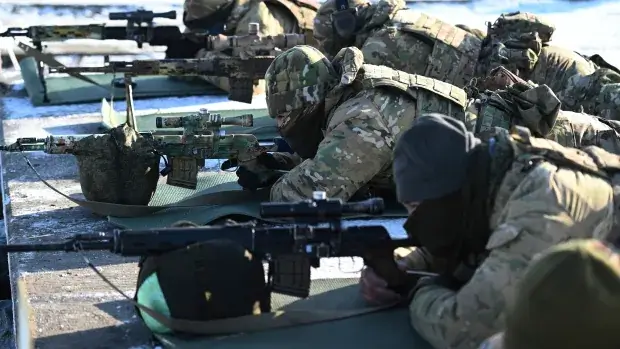NATO’s secretary general says that while there’s an urgent need for diplomacy to resolve the crisis in eastern Europe, it’s up to Russia — not Ukraine — to show flexibility.
In an interview with CBC News airing Sunday, Jens Stoltenberg was asked whether the government of Ukrainian President Volodymyr Zelensky could — or should — be doing more under the existing Minsk agreements to pull Europe back from the brink of a new war.
Moscow has precipitated the current crisis, he said.
“The aggressor is Russia,” Stoltenberg told CBC’s chief political correspondent Rosemary Barton. “To expect that the victim of aggression should de-escalate is to really put the whole thing in a bit of [a] strange, upside-down way.”
Stoltenberg said that while it’s up to Russia “to de-escalate,” NATO is still willing to sit down again and listen to Moscow’s concerns.
A spokesperson for the Kremlin described as “unsuccessful” the round of security negotiations that took place this week involving the U.S., NATO and the Organization for Security and Cooperation in Europe (OSCE).
Russia’s ambassador to the OSCE, Alexander Lukashevich, warned of possible “catastrophic consequences” if the two sides can’t agree on Russia’s security red lines. He said that Moscow had not given up on diplomacy even though no new talks are scheduled.
Stoltenberg, a former prime minister of Norway who negotiated border disputes with the Russians in the Far North, said he has faith a deal with Moscow is possible.
“I think the most important thing I learned was that there’s no contradiction between … defence, strength and dialogue. As long as we are strong, as long as we are united, we can engage in dialogue and discuss many issues with Russia,” he said. “Dialogue, talks, negotiation is not a sign of weakness, it’s a sign of strength.”

